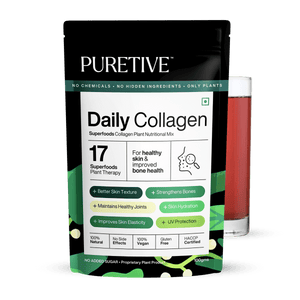Eczema, also known as atopic dermatitis, is a chronic condition that affects millions of people worldwide. Despite its prevalence, misconceptions about eczema often cloud understanding and management, leading to confusion and ineffective treatment. In this detailed guide, we'll debunk three common myths about eczema, providing a clearer picture of this complex condition and offering practical advice for managing it effectively.

Myth 1: Eczema is contagious
Truth: Eczema is not contagious. One of the most persistent myths about eczema is that it can be spread from person to person, similar to a cold or flu. This misconception can lead to unnecessary worry and social stigma, making it harder for people with eczema to seek help and receive proper care.
-
Non-contagious nature: Eczema is a non-infectious condition. It cannot be contracted through physical contact, shared surfaces, or exposure to someone with eczema. The primary causes of eczema are related to genetic and environmental factors rather than infectious agents.
-
Genetic and environmental factors: Eczema often runs in families, suggesting a genetic predisposition. Individuals with a family history of eczema, asthma, or hay fever are at a higher risk of developing the condition. Environmental triggers, such as exposure to certain allergens, irritants, and pollutants, can exacerbate eczema but are not infectious.
-
Triggers, not germs: While eczema itself isn’t contagious, its symptoms can be aggravated by various factors such as stress, allergens (like pollen or pet dander), and irritants (such as certain soaps or fabrics). Managing these triggers effectively can help control symptoms and reduce flare-ups.
Myth 2: Only children get eczema
Truth: Eczema can affect individuals of all ages. Although eczema is commonly diagnosed in infancy or childhood, it is not limited to these age groups. Many adults also suffer from eczema, and in some cases, the condition may first appear in adulthood.
-
Lifelong condition: For many individuals, eczema is a lifelong condition. Children with eczema may continue to experience symptoms into adulthood, although the severity and frequency of flare-ups can vary. In some cases, eczema symptoms may improve with age, but for many, it remains a chronic issue that requires ongoing management.
-
Adult onset: It’s also important to recognize that eczema can develop for the first time in adulthood. Adult-onset eczema may present differently from childhood eczema, often leading to challenges in diagnosis and treatment. Adult eczema may be influenced by factors such as hormonal changes, stress, or exposure to new allergens or irritants.
-
Chronic nature: Eczema is characterized by periods of flare-ups and remissions. The chronic nature of the condition means that it can flare up at any age, requiring a continuous approach to management and treatment. Understanding that eczema is not restricted to a particular age group can help in seeking appropriate care and support.
Myth 3: Eczema is just dry skin
Truth: Eczema involves more than just dryness. While dry skin is a common symptom, eczema is a multifaceted condition with a range of symptoms and underlying issues that extend beyond mere dryness.
-
Inflammatory component: Eczema is fundamentally an inflammatory skin condition. It causes redness, itching, and swelling due to inflammation in the skin. This inflammation can lead to discomfort and exacerbation of symptoms, including the formation of rashes, blisters, and thickened skin.
-
Barrier dysfunction: One of the core issues in eczema is a dysfunction in the skin’s natural barrier. Healthy skin acts as a protective barrier against environmental irritants and pathogens. In eczema, this barrier is compromised, making the skin more susceptible to irritants, allergens, and infections. This barrier dysfunction contributes to the dry, itchy, and inflamed skin associated with eczema.
-
Comprehensive care: Effective management of eczema requires more than just applying moisturizer. While hydration is crucial for maintaining skin health, treatment often involves a combination of approaches, including:
- Topical treatments: Corticosteroids and non-steroidal anti-inflammatory creams are commonly used to reduce inflammation and manage flare-ups.
- Avoiding triggers: Identifying and avoiding personal triggers, such as certain foods, allergens, or environmental factors, can help prevent flare-ups.
- Lifestyle adjustments: Implementing lifestyle changes, such as using gentle, fragrance-free skincare products, wearing breathable fabrics, and maintaining a consistent skincare routine, can support overall skin health and reduce eczema symptoms.
Practical tips for managing eczema
Understanding the true nature of eczema is essential for effective management. Here are some practical tips to help manage and alleviate eczema symptoms:
-
Keep skin moisturized: Regularly apply emollients or moisturizers to keep the skin hydrated and maintain the skin barrier. Look for products that are free from fragrances and other potential irritants.
-
Identify and avoid triggers: Maintain a diary to track potential triggers and flare-ups. Identifying specific allergens, irritants, or stressors can help you avoid or minimize exposure to these triggers.
-
Use gentle skin products: Choose skincare products that are designed for sensitive skin. Avoid products with harsh chemicals, dyes, or fragrances that can exacerbate eczema.
-
Adopt a consistent skincare routine: Develop a daily skincare routine that includes gentle cleansing and moisturizing. Consistency is key to managing eczema effectively.
-
Seek professional advice: Consult with a dermatologist or healthcare provider for personalized treatment options. They can help diagnose the condition accurately and recommend appropriate therapies and lifestyle adjustments.
-
Consider alternative therapies: Some individuals find relief through alternative therapies such as acupuncture, herbal remedies, or dietary changes. Discuss these options with your healthcare provider to determine what might be beneficial for you.
Conclusion
Dispelling myths about eczema is crucial for better understanding and managing this complex condition. Eczema is not contagious, can affect individuals of all ages, and involves more than just dry skin. By embracing accurate information and seeking appropriate care, individuals with eczema can take proactive steps towards managing their symptoms and improving their quality of life. Remember, eczema is manageable with the right approach and knowledge. Don’t let myths cloud your understanding—embrace the truth and empower yourself to achieve healthier, happier skin.











